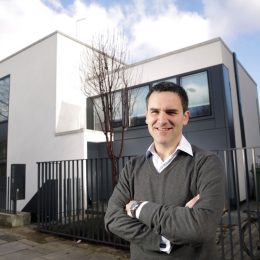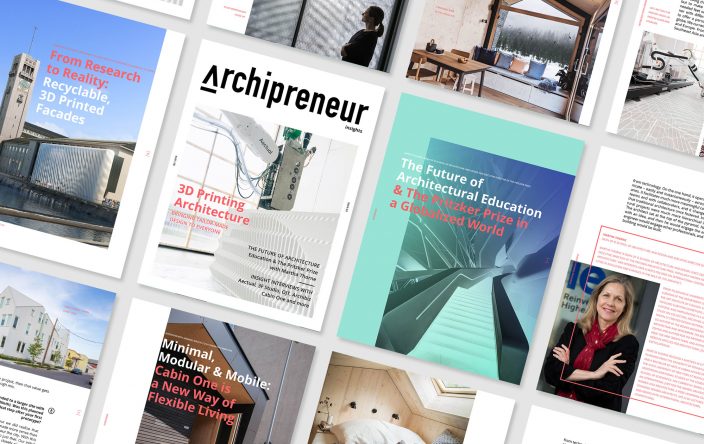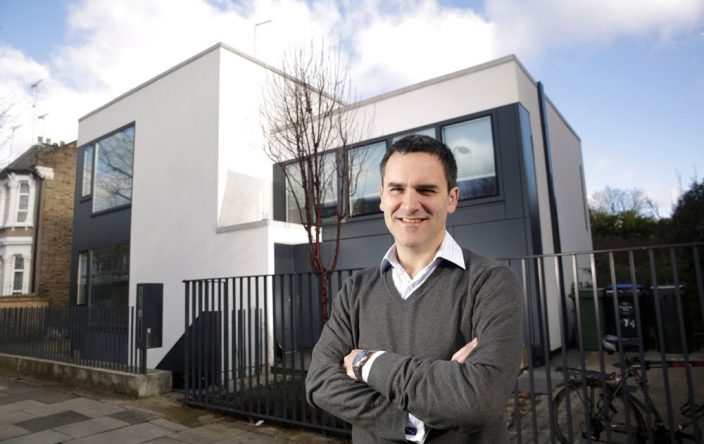
Real Estate in the Digital Age: An Industry in Transition
Carmen Panadero has an impressive and diversified career with experience in architecture, real estate, strategic consulting, repositioning of assets and management of large accounts, as well as project drafting and international business development.
Building on this foundation of design, business and real estate knowledge, she is an industry expert and encourages others to join her in taking charge of the future of our cities—”the centers of innovation, culture and learning.”
She believes technological disruption is here, it is our present, and with strong networks among professionals there is a greater opportunity for knowledge sharing and advancement. Technological advancement will help to resolve present challenges and change the way we build and live.
As the founder of WIRES (Women in Real Estate Spain), Panadero encourages her counterparts to work toward the shared objective of greater corporate social responsibility and inclusion within the built environment industry.
Could you please tell us a bit about your background?
I am an architect and director of Business Development at DCN, where I lead the company’s real estate development. In addition, I also run IE Business School’s Master in Real Estate.
I have a lengthy track record working at companies such as CBRE—in strategic consulting, repositioning of assets and management of large accounts—as well as at Estudio Lamela, where I’m the project drafting technician and work in international business development.
This involvement across different areas of a highly professional sector has given me significant “added value”, because having been a technician, sales person and consultant has allowed me to reach my present “expert” status giving me solid foundations to build on.
You began your career in architecture, transitioning to real estate development later. What are the key skills your background in architecture has given you?
The skill set that has helped me has included:
- A global vision and understanding of complex problems (that’s what my background in architecture gave me)
- Perseverance and a desire to learn from colleagues in different fields (architects know they can never stop learning)
- Knowing how to create value in the real estate environment. And understanding that buildings are the base on which everything else (the financial, legal and management part) pivots.
- Reading, investigating, chatting with experts… with a single purpose: to keep up with new techniques and innovations, always keeping an eye on trends that give us clues as to where the
future of our sector is going.
Has your background in the real estate sector changed your view on architectural studies? Do you think that there is a knowledge gap in the way architecture is taught?
For me, architects can develop into leaders in the real estate market, but must be trained in areas that complement their technical background, particularly the need to understand the fundamental strategic, financial, legal and management aspects of the real estate environment, as well as the agents, tools and techniques involved.
The real estate market is based on property assets and how they are valued in the market and the built environment. Understanding the relationship between them is a significant part of this profession. This requires developing the following skills:
- An understanding of the principles of urban economies and the capital markets that invest in the real estate sector, as well as understanding how cities work, along with knowledge of the tools and financing processes in the built environment.
- The strategic management of real estate operations.
- The relationship of the real estate sector with the urban environment in which it develops, identifying synergies between both.
- The disruption of new technologies and sustainability: we live in the digital era.
What are your thoughts on digitization in the real estate industry? Will Proptech disrupt the real estate business?
Yes, the world is changing and it is time for real estate to stop being a mere spectator. We have to start leading this transformation. Proptech is no longer the future of our sector, but the present. The disruption caused by new technologies and how they affect the property sector are basic concepts that professionals in the sector must master or at least know that they exist and how they affect us. We live in the digital age: not being digital is no longer an option.
“Proptech is no longer the future of our sector, but the present.”
Buildings are already being built with digital twins that help us to control all the parameters that affect the design, construction and subsequent behavior and management from the same scorecard, and that is something we should know how to take advantage of.
You are the president and founder of WIRES, the association of Women in Real Estate in Spain. Could you tell us more about your work in the organization and your goals for the future?
Wires was born four years ago and the results were very positive over that time. When the founding members created the association we had the idea of becoming a reference point for the many women working in the real estate sector. We had two main goals: to help women build networks based on trust; and to give greater visibility to women in the Spanish real estate sector by increasing awareness of the excellent work they have been doing for some time now.
Today, we have more than 220 members! We receive proactive requests every month from more and more female managers who want to be part of Wires; at this point, we have formed a group of talented professionals contributing ideas and working together on common objectives.
We want to give great value to our members through training and events. It is time to give something back to our members. For their efforts through specialized training, career plans or specific orientation. We are also strengthening the relationship between us through themed dinners and meetings oriented toward issues that affect all our members.
Another important area I am working on now is to give more importance to corporate social responsibility: at WIRES we believe that now we have a representative place in the sector, we must direct a part of our efforts to the social good and we want to act in two areas.
A mentoring program to provide support and guide young women through their careers to better achieve their professional goals. Women’s CSR, a once a year event with WIRES donating a percentage of our quotas to an NGO chosen by all the members. We believe that both initiatives will be a milestone in the work of the association and we are very proud of both projects.
Do you have any advice for Archipreneurs interested in a career in real estate development?
My best advice? Hard work, continuous training and a desire to learn. After that comes everything else. In this world there are no shortcuts in what is an increasingly professionalized sector.
Our responsibility as professionals in the sector is to master the following principles:
- The urban economies of cities, the relationship between built heritage and the urban environment in which it is developed, and identify synergies between both.
- The capital markets that invest in the real estate sector.
- The tools and processes of financing in the built environment.
- The strategic management of property development and custody of the built environment.
- Understanding the drivers that move the world now: new technologies and global sustainability.
My second piece of advice would be: have the courage to face challenges and embrace innovation.
What are your thoughts on the future of architecture and the built environment? How can it improve, and where are the best opportunities?
Without a doubt: cities. Cities are centers of innovation, culture and learning. The real estate world and especially the promoter arm are the main catalysts for growth. In addition, for social development in cities, bringing people and companies together and creating communities.
“We live in the digital age: not being digital is no longer an option.”
Population transfer to the cities is happening at an unprecedented speed and scale. The majority of the world’s population now lives in urban centers and the numbers are growing. This translates into an increasingly important role for responsible property development.
Technology is also evolving and will provide new opportunities to effectively address emerging challenges. Investment environments are now global and increasingly complex; The new governance models will affect the way we build, manage and live in cities to create more competitive and democratic territories. —
Join our Newsletter
Get our best content on Architecture, Creative Strategies and Business. Delivered each week for free.

JOIN THE
ARCHIPRENEUR ACADEMY
- 9 Stage Studio Growth Roadmap
- Library of In-Depth Courses
- Checklists and Workbooks
- Quick Tips and Tutorials
- A Supportive Online Community















